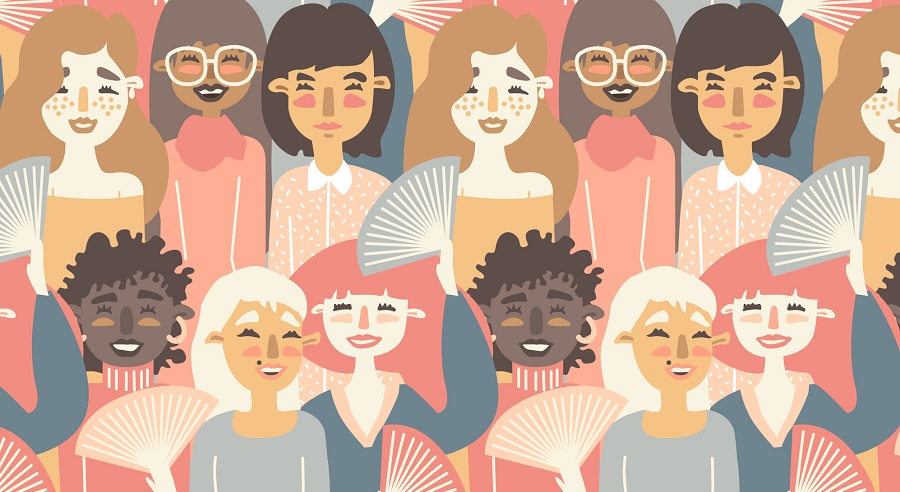Society’s unrealistic standards of beauty have become an issue that we talk about as the minds of a generation born into social media are finally old enough to know what’s going on. Although everyone has something to say in the face of this multi-layered issue, I think they need to look at the issue from a broader perspective that has not been fully met yet. First of all, I think it is necessary to set the ground for the discussion that beauty standards are a product of patriarchal, capitalist, and even colonial relations and I ask: If everyone agrees that they are crushed by beauty standards, whose standards are these standards?
We have recently observed a process where the body positivity trend finally reaches influencers. It is not my intention to describe this as a negative development, on the contrary, I think it is a very important step in an industry so closely related to beauty standards. But pretending that there is no self-criticism to be given on the other side of the coin is politely playing with social media users’ minds. It is not the first time that we have encountered capitalism commodifying the means produced against itself, but there is a situation that has the potential to affect human health deeply. We should all be aware of how many physical and psychological disorders this situation can lead to, such as increasing bulimia, depression, and self-harm. For this very reason, it is necessary to change the course for the physical and mental health of the generation that comes after us.
In this direction, let’s take the beauty influencers we mentioned. Those who have shared their most aesthetic appearances with us for years with the most expensive make-up materials and clothes, with the most professional equipment and programs, and who are the most important bearers of these beauty standards, are now telling us that all of these are lies. However, even when they share their unfiltered Instagram accounts, they don’t look much different from their filtered ones, because the money they earn in this capital cycle has already been used for a look that will comply with beauty standards. And yes, an aesthetic look, like anything else, is classy as well. Lack of access to expensive makeup, plastic surgery, personal fitness trainers or healthy food deepens the pressure of this perception. That’s why we need more than just talking about them now, just as capitalism is starting to own voices against these perceptions of beauty. These conversations need to go further than just personal troubles and content production on personal pages. The sincerity of the obvious steps taken to survive in this capital cycle is a big question mark, just as luxury brands give the opportunity to models of large sizes or different races. Moreover, it is not insignificant because the thought that we have to fit into one or another of these patterns has already been etched in a corner of our minds and it seems that it will not be easy for us to forget who carved it. Therefore, it is time for the producers to take responsibility, even if they are not the owners of these beauty standards, which no one has undertaken, for some reason.
On the other hand, it is not a coincidence that it is only women who are stuck in this circle of beauty standards, just like the majority of the audience directed to those shopping links we mentioned are women. So who’s the winner in this whole look-good-shop-follow cycle? Definitely not women. Therefore, frankly, I do not believe that discourses that do not coincide with the various practices of women’s struggle will provide a lasting benefit to anyone. The whole system where you share a photo of you looking gorgeous with a bag worth thousands of Liras, direct people to a cheap equivalent of the same bag, get a commission from the money spent there, and where you want to be followed and liked to give your followers one of the gift products that come in bags with a lottery, “Look, I’m actually a little bit like you. too big to be acquitted with “I have a belly”. While women are directly targeted by the psychological harms of social media, oppression, and even violent lynching culture, if we are lucky, inconsistent scenarios in which the 8 March messages, not with a discount but with text, do not meet with attitudes, cannot get women out of any system of oppression. Maybe he can just compress it into a new and expanded version with a slightly changed shape, but this new version cannot play a role in solving all the problems because it derives from the sources of the old one.

